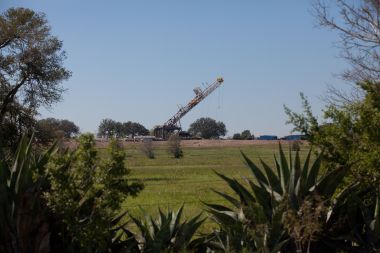Introduction

Seeking to close what a lawyer called “serious gaps” in regulation, 64 environmental and community groups on Tuesday petitioned the Environmental Protection Agency to clamp down on toxic air emissions from oil and gas operations.
The 112-page petition, filed by the public-interest law firm Earthjustice, asks the EPA to use its authority under the Clean Air Act to develop “robust emission standards” limiting the amounts of benzene, formaldehyde and other harmful chemicals that can be released by wells and associated equipment.
“Some of the documented health effects of the many types of [hazardous air pollutants] emitted during oil and gas production include increased risks of cancer, respiratory diseases, and birth defects, among others,” the petition says.
Emma Cheuse, an Earthjustice lawyer, said in a telephone interview that “people across the United States need leadership at the national level, need the EPA to act.” Most states experiencing heavy drilling have done a poor job of enforcing the federal clean-air law, Cheuse said; the EPA needs to step in “so people won’t have to wait years and years for protection.”
The petition addresses an issue highlighted in “Big Oil, Bad Air,” a project unveiled by the Center for Public Integrity, InsideClimate News and The Weather Channel in February. The series examined the air pollution impacts of the Eagle Ford Shale boom in South Texas, where nearly 9,000 oil and gas wells have been drilled in the past five years through the use of hydraulic fracturing, or fracking. Some residents of the region have reported breathing difficulties, nosebleeds, headaches, nausea and other conditions they blame on emissions from wells, storage tanks, gas processing plants and other facilities.
States like Texas regulate air pollution from oil and gas production activities using a patchwork of laws and rules, which, critics say, are often loosely enforced.
As of 2011, there were more than 1 million wells in the United States, “and as many as 45,000 new wells are expected to be drilled each year through 2035,” the Earthjustice petition says.
“The oil and gas expansion has brought drilling activities closer to heavily populated areas, including the Dallas/Fort Worth, Pittsburgh, Denver, and Los Angeles metropolitan regions, placing drilling rigs near homes, schools and workplaces and posing an ever increasing threat to public health. If this development continues as predicted, more communities will face greater toxic air emissions and associated harm … ”
In an email Tuesday, an EPA spokeswoman wrote, “We will review the petition.”
Read more in Environment
Environment
Is this U.S. coal giant funding violent union intimidation in Colombia?
Alabama-based Drummond Co. sued for alleged ties to group behind deaths, threats


Join the conversation
Show Comments